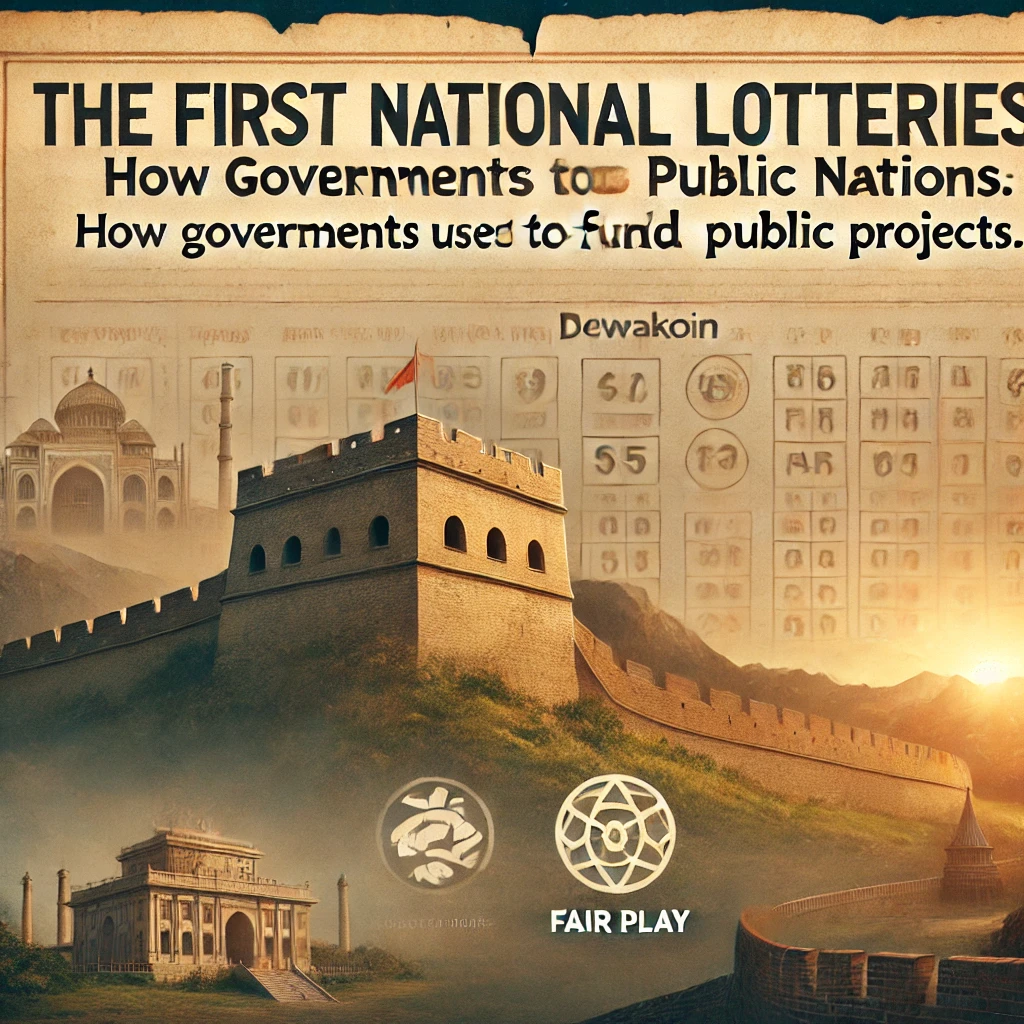Lotteries have been around for centuries, and their earliest forms weren’t just about winning money—they were used by governments to fund public projects, build infrastructure, and support national development. From the construction of iconic landmarks to financing wars, national lotteries have played a crucial role in shaping economies.
In this article, we explore the history of the first national lotteries, how they funded public projects, and why modern governments still rely on lottery revenue today.
1. The Origins of National Lotteries
✔ Early Lottery Systems
Lotteries date back to ancient civilizations, where leaders used games of chance to raise money for public causes.
✔ China’s Han Dynasty (205–187 BC) – The first recorded lottery helped fund the Great Wall of China.
✔ Roman Empire (100 BC–400 AD) – Emperors like Augustus held lotteries to finance city repairs.
✔ European Renaissance (1400s-1600s) – Governments in Italy, France, and England used lotteries for military and infrastructure funding.
These early lotteries set the stage for government-backed national lotteries that still exist today.
2. The First National Lotteries in History
🎟 1. The Netherlands – The Oldest Running Lottery (1726-Present)
✔ Established to raise funds for the Dutch state.
✔ Today, Nederlandse Loterij still operates, supporting education and healthcare.
🎟 2. The UK National Lottery (1709 & Modern Relaunch in 1994)
✔ First started in 1709 to fund the British military.
✔ The modern version launched in 1994, with billions raised for public projects like the London Olympics and national heritage sites.
🎟 3. The United States – Lottery-Funded Infrastructure (1700s-1800s)
✔ Harvard, Yale, and Princeton universities were partially built using lottery funds.
✔ The Statue of Liberty’s pedestal was financed through a lottery campaign.
✔ Many U.S. states still use lotteries to fund public education.
🎟 4. France – The King’s Lottery (1700s)
✔ Louis XV established “Loterie Royale” to reduce national debt.
✔ Eventually evolved into Française des Jeux (FDJ), which funds sports and community projects today.
🎟 5. Spain – The Famous El Gordo (1812-Present)
✔ One of the world’s biggest lotteries, funding social welfare programs.
✔ Generates billions in revenue, supporting education and healthcare initiatives.
3. How Governments Still Use Lottery Funds Today
✔ Education – Many national lotteries fund schools, scholarships, and research.
✔ Public Infrastructure – Roads, bridges, and national monuments receive lottery-backed financial support.
✔ Healthcare & Social Programs – Lottery revenues help fund hospitals, medical research, and welfare programs.
✔ Sports & Culture – Many Olympic teams, museums, and arts programs benefit from national lottery money.
Modern lotteries are a major source of public funding without increasing taxes.
4. Why DEWAKOIN is the Best Platform for Lottery Enthusiasts
✔ Access to Global Lottery Games
✔ Play national lotteries from around the world.
✔ Participate in instant win and jackpot draws.
✔ Fair and Secure Lottery Gaming
✔ Uses blockchain-backed transparency for provably fair results.
✔ Fast, secure crypto-based transactions.
✔ Biggest Payouts & Exclusive Bonuses
✔ High jackpot payouts on major international lotteries.
✔ Special promotions and free ticket giveaways.
With DEWAKOIN, lottery fans can experience the best national and global lottery games with high payouts and secure transactions.
Conclusion: National Lotteries Have Always Served a Bigger Purpose
Lotteries aren’t just games of chance—they have been a critical tool for funding public projects for centuries. From the Great Wall of China to modern-day infrastructure, national lotteries helped build nations while giving players the chance to win big.
If you want to play global lotteries and be part of history, DEWAKOIN offers the best selection of lottery games with massive jackpot potential.
Try your luck today and be part of a tradition that has shaped economies for generations.



